Skordalia (Greek Garlic-Potato Spread) is a wonderful dish that is traditionally served as a meze but can also be served as an appetizer or side dish.
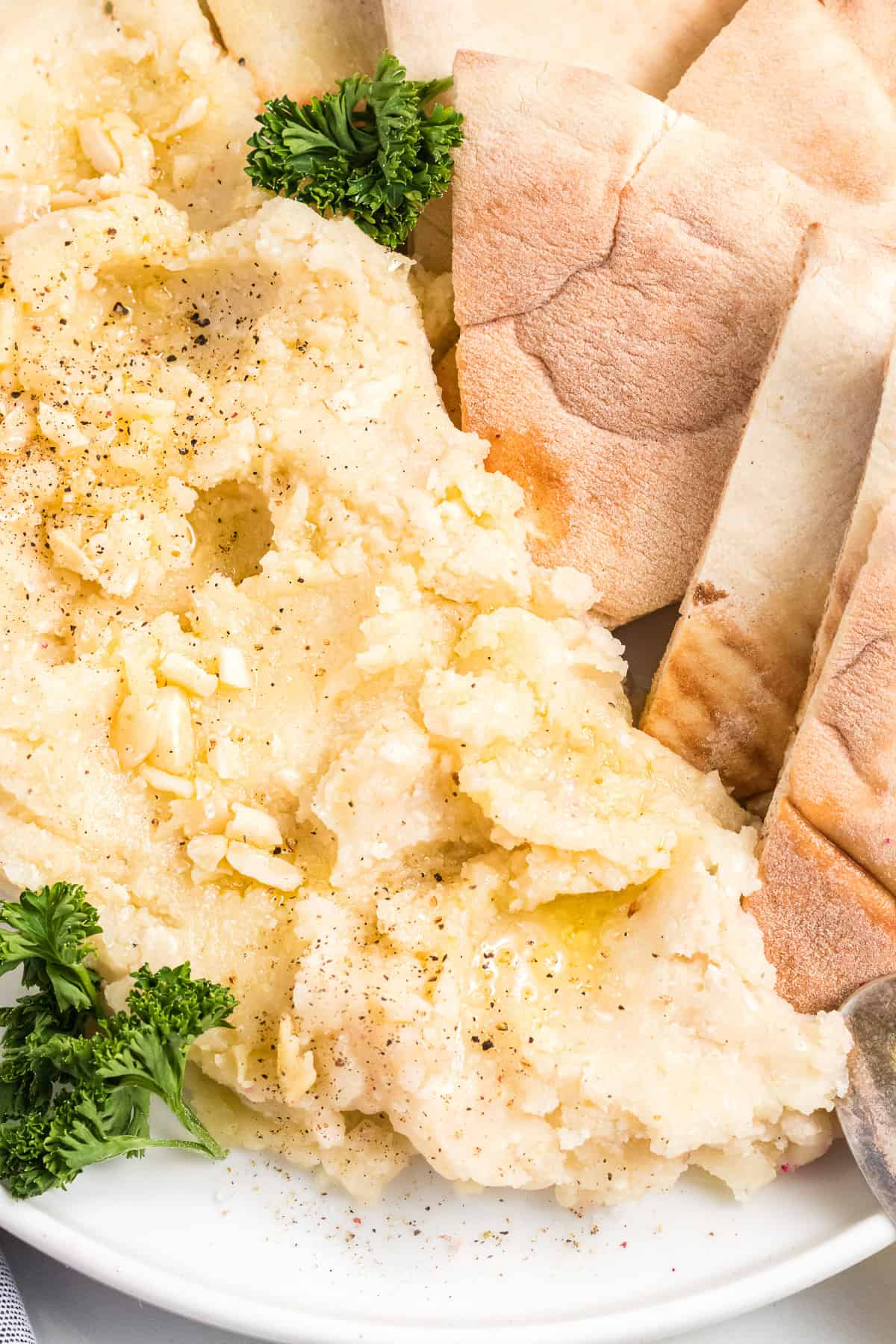
Loving recipes with Greek flavors? Be sure to also check out our Greek Meatballs (Keftedes), Baked Greek Feta Fries, and this Beef Souvlaki with Feta and Dill Dip!
One of our favorite restaurants in San Francisco is Kokkari, an upscale Greek place that serves the most incredible Mediterranean cuisine. Everything there is legitimately amazing, but we always have to get their pantzaria me skordalia, which is described as “roasted beets with Greek yogurt garlic-potato skordalia & pistachio”.
If you love garlic, this is the dish for you. Skordalia is a garlicky, creamy spread or dip that makes the best appetizer or side served with pita bread or roasted beets.
Skordalia is a traditional Greek dish frequently served on a meze or mezethes (In Greek: μεζέδες pronounced meh-ZEH-thes) platter, along with other favorites such as tzatziki, hummus, and beef or lamb Greek meatballs (Keftedes). If you haven’t had a meze platter, think tapas (small dishes meant to be shared), but Greek style.
The meze (singule for mezethes) tradition dates way back to ancient Greece. They are not actually appetizers, which are meant to whet the appetite for the upcoming meal, but really more like small, savory dishes that are often served with other mezethes and shared with everyone at the table so that family and friends can enjoy a variety of flavor and texture experiences. If you are interested in knowing more about the meze tradition, read here.
Skordalia is one of two classic mezethes that are frequently paired together, the other being simple roasted beets which are amazing with the powerful garlic of the skordalia.
Why this Recipe Works
- While skordalia is traditionally made with a mortar and pestle, you can use a food processor (affiliate link) to make a paste from the garlic and nuts with way less effort.
- I like to stir in a dollop of Greek yogurt at the end to up the creaminess factor and make it closer to the inspiration dish that we had at Kokkari in San Francisco, but that’s optional. Remember that Greek yogurt is a great substitute for sour cream and sour cream and potatoes are a classic combo!
- The pungent bite of the raw garlic adds a fantastic kick. But if that’s too much for you, feel free to use roasted garlic which is much more mellow and sweeter instead.
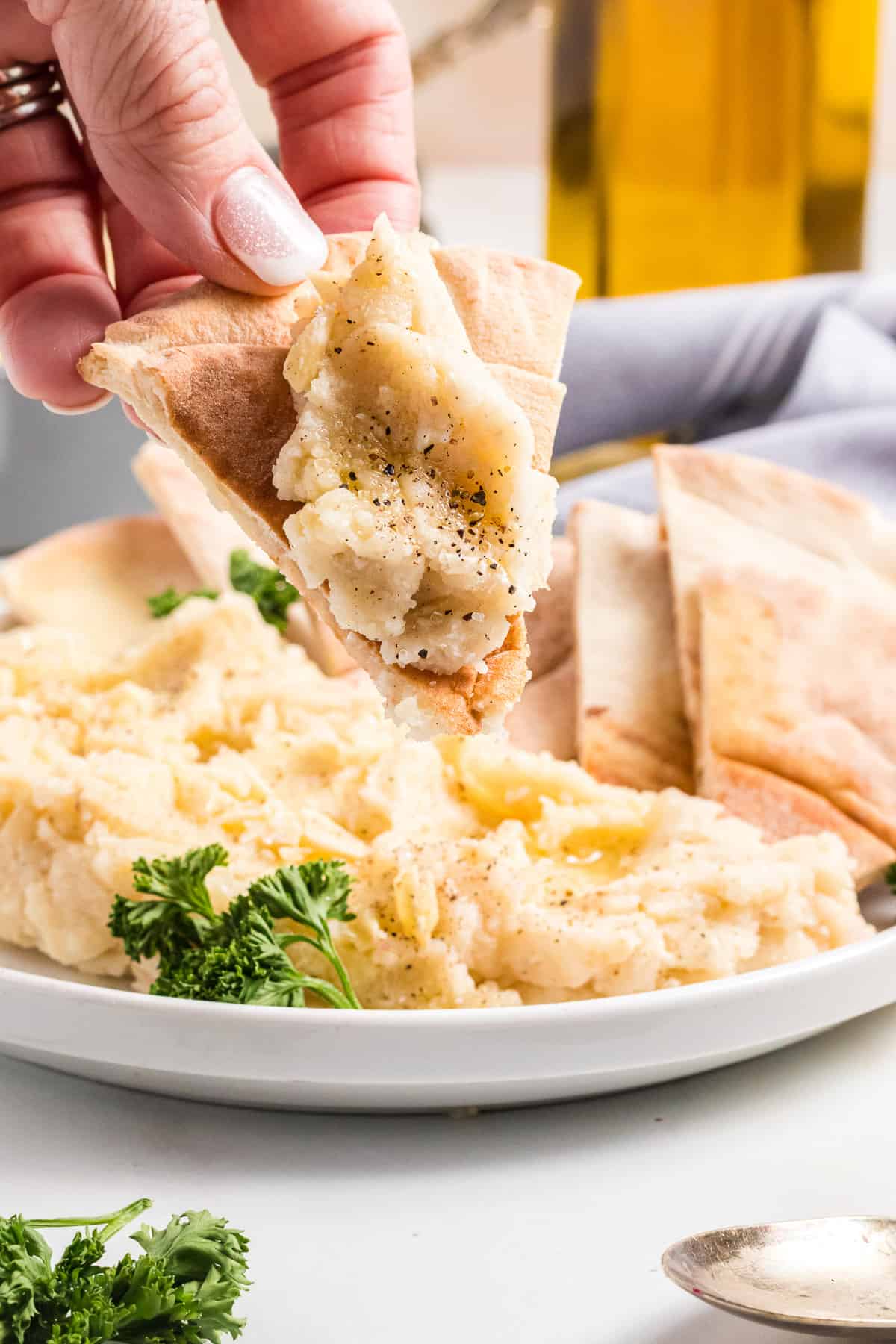
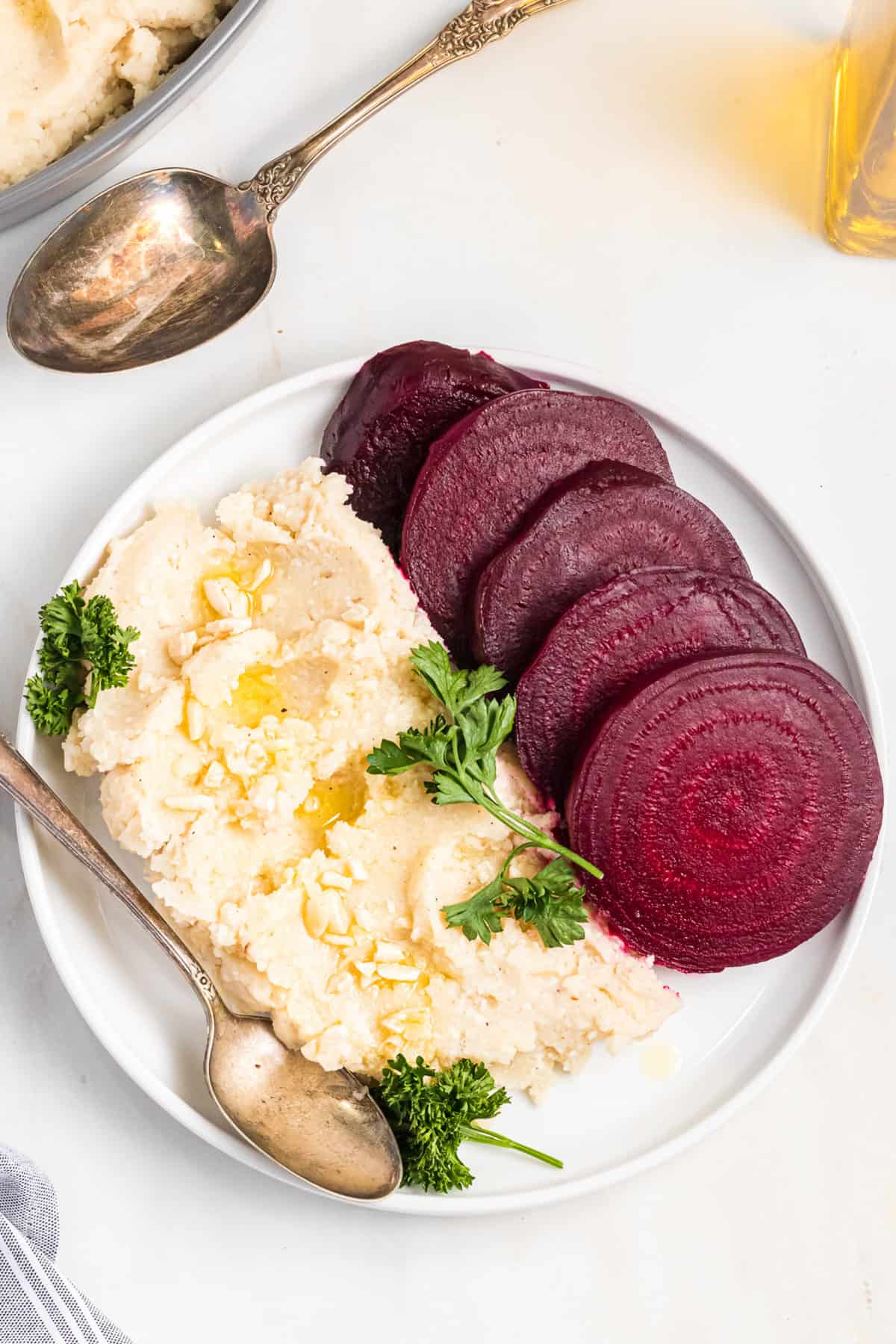
Ingredient Notes
- Potatoes: Skordalia is typically made with either boiled potatoes or stale bread, depending on what part of Greece you are in. We were introduced to the potato version at our favorite Greek restaurant, which is the version I’m sharing here.
- Nuts: Walnuts, pine nuts, and almonds are all commonly used in skordalia, but pistachios are excellent as well. I like to save some in reserve to sprinkle over the top for a little crunch to go with the creamy dip since I’m a texture freak.
- Garlic: You just can’t make skordalia without plenty of garlic. Use fresh, whole garlic cloves, not the preminced jars of garlic, for best results.
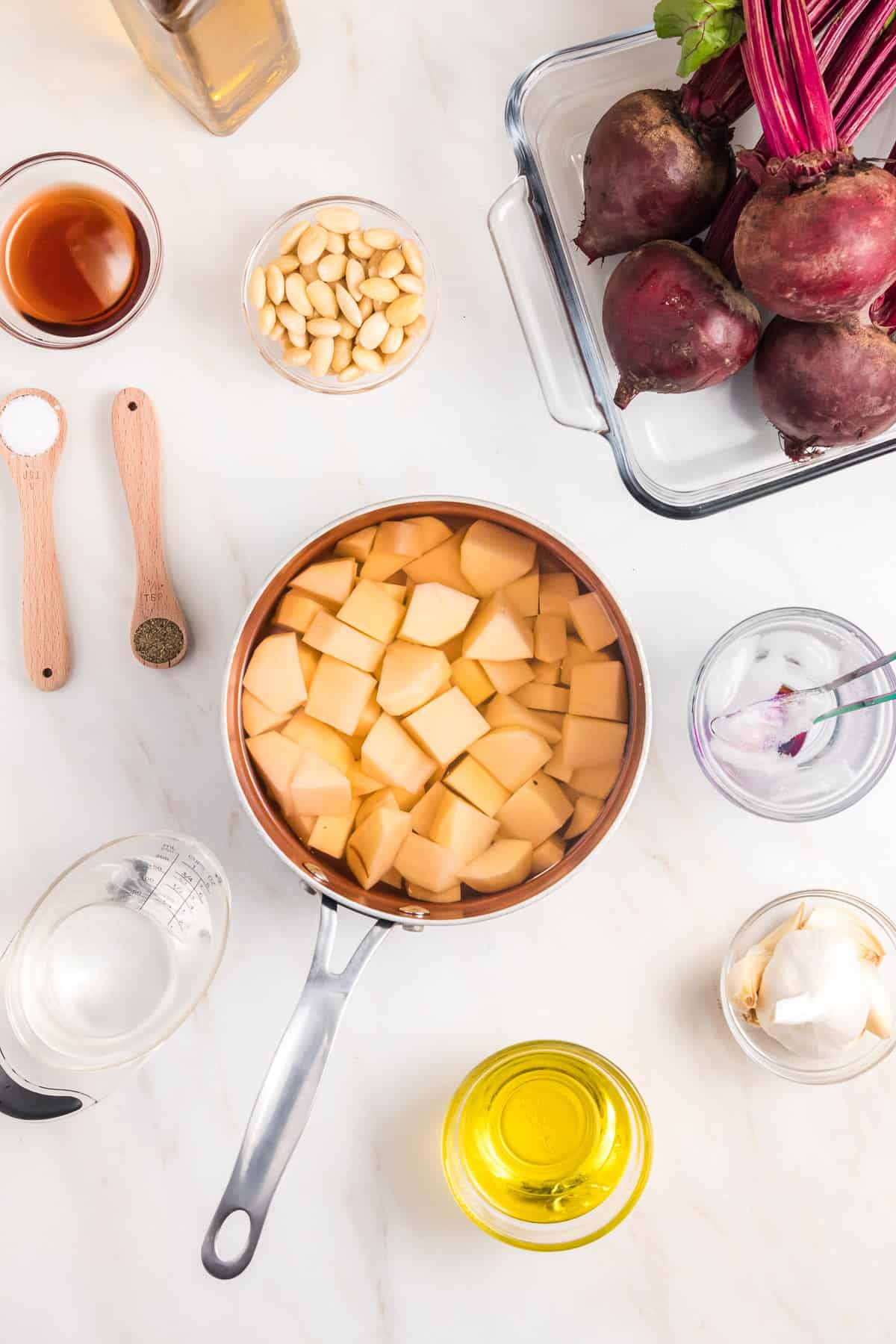
How to Make This Recipe
Start by peeling and boiling potatoes until they are fork tender. For smoother skordalia, use a potato ricer to rice the potatoes or just mash them with a potato masher. Set those to the side for now.
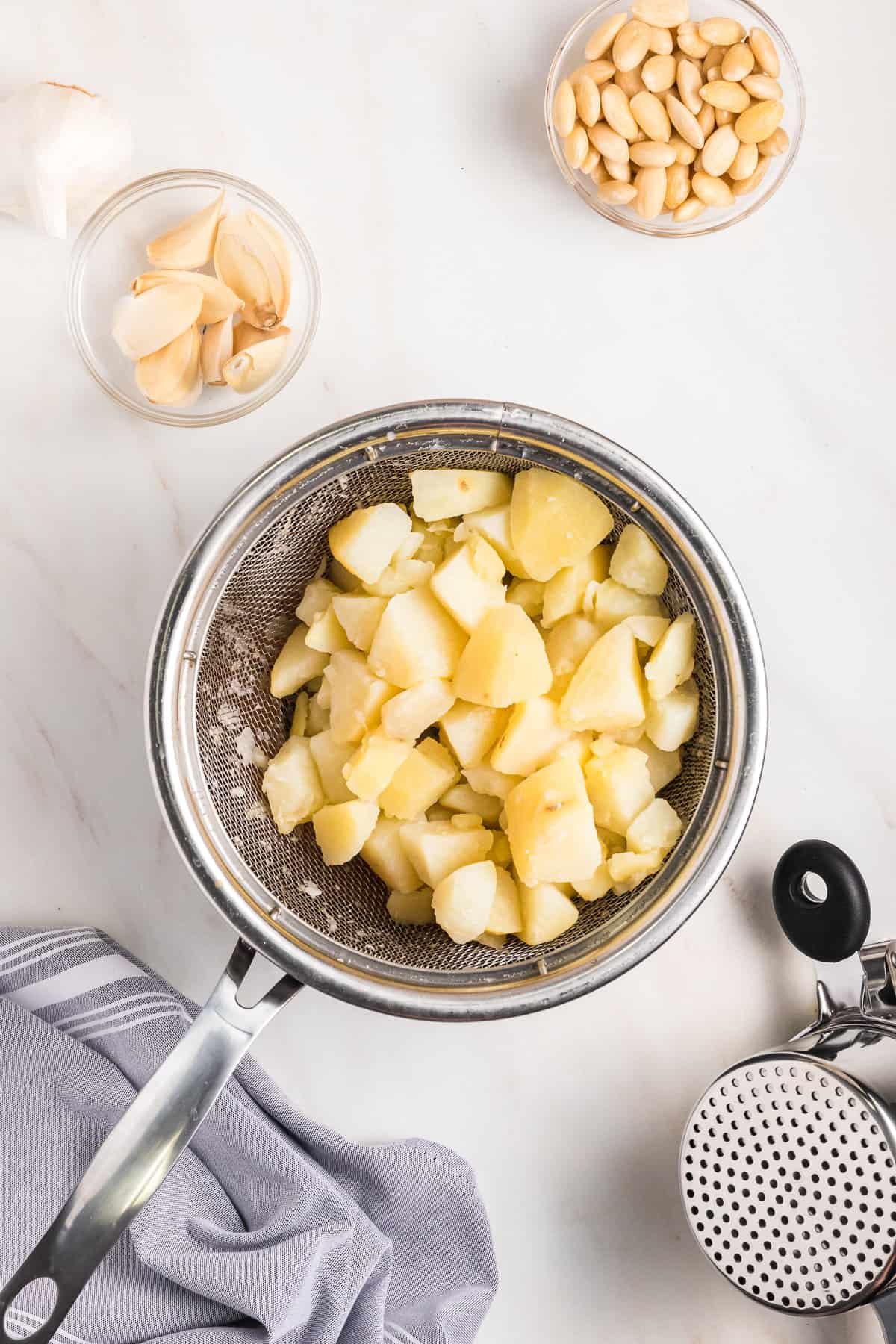
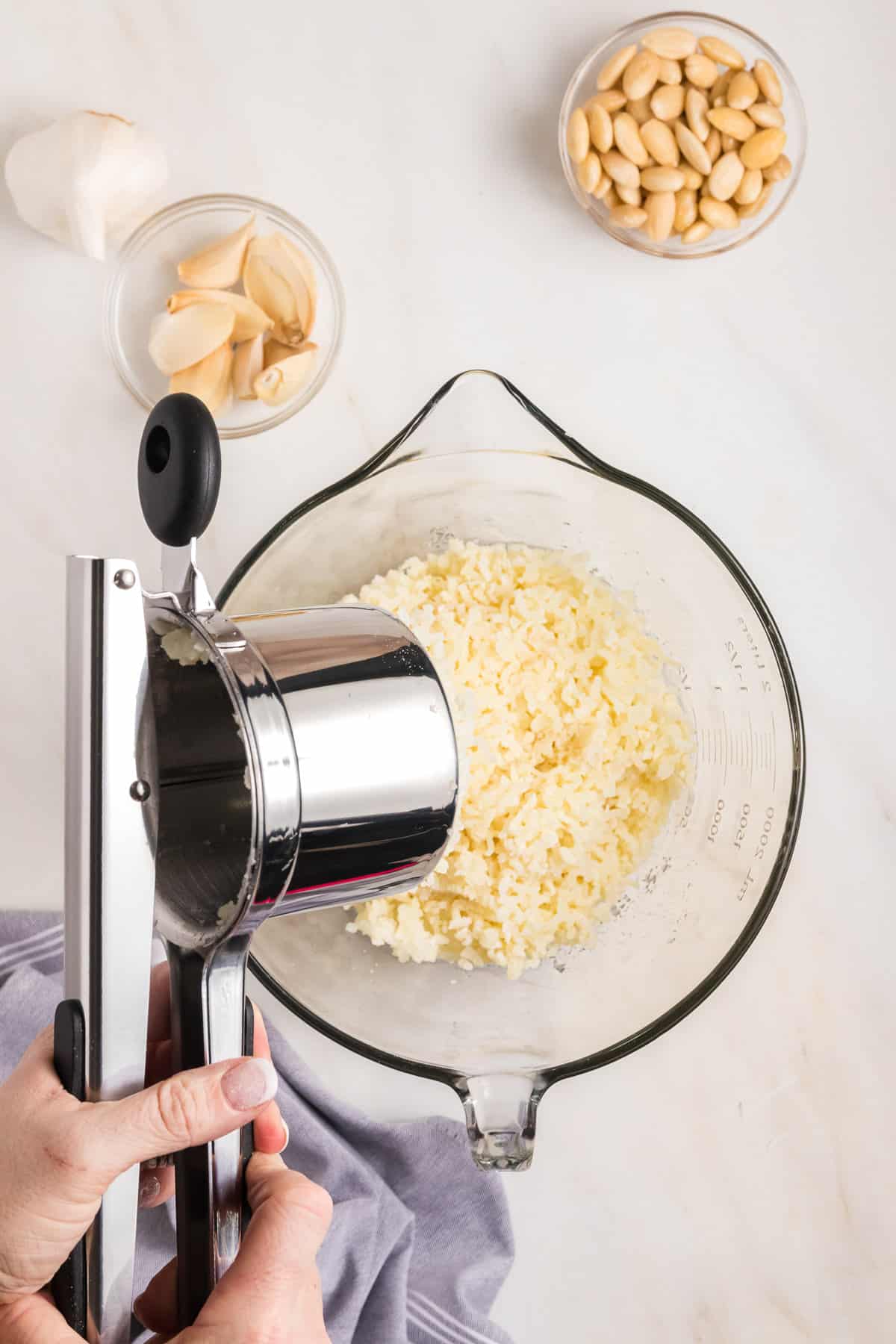
In a food processor (affiliate link), combine the almonds (or pistachios or whichever nut you want to use), garlic cloves, vinegar, oil, and salt & pepper and process them into a smooth paste.
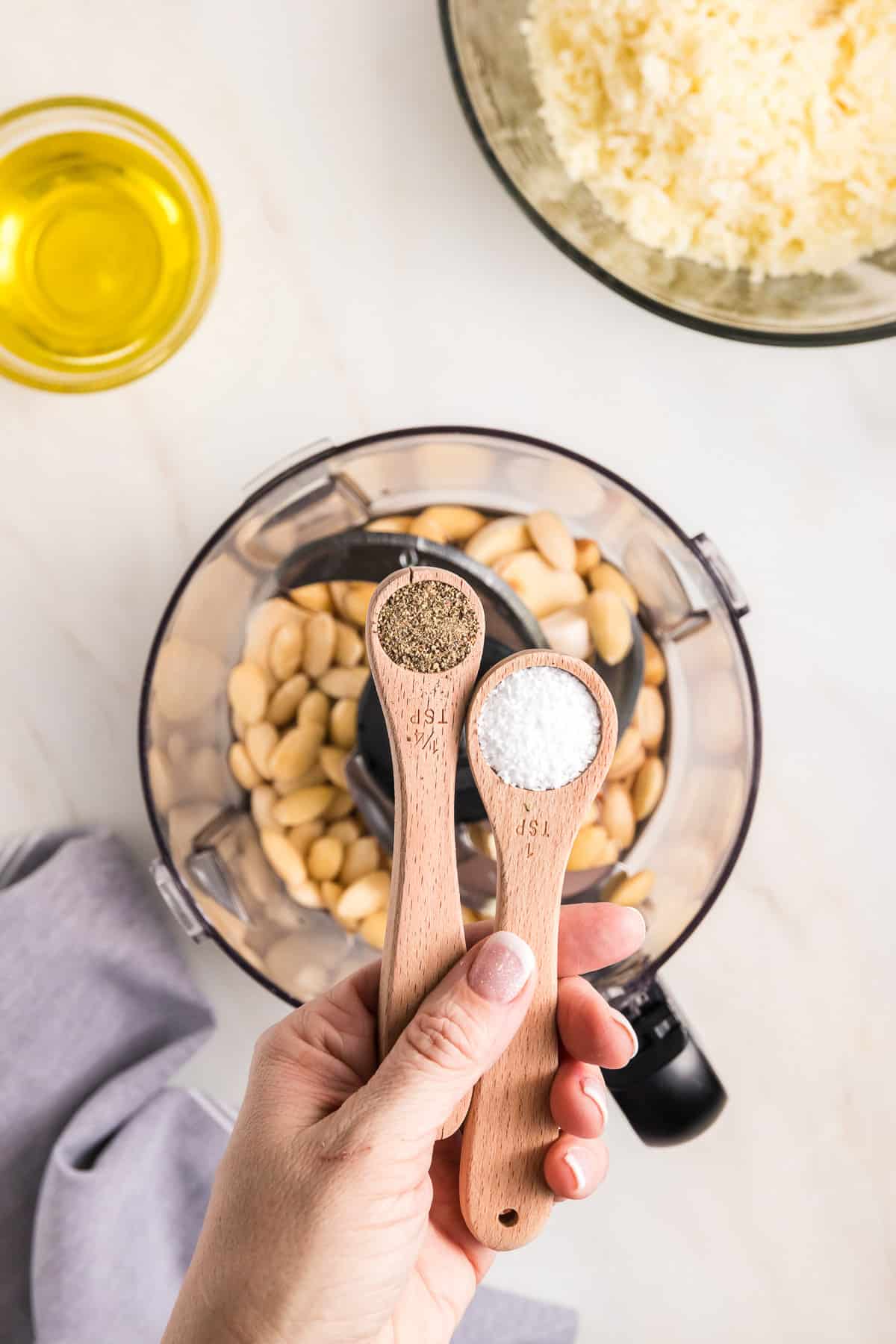
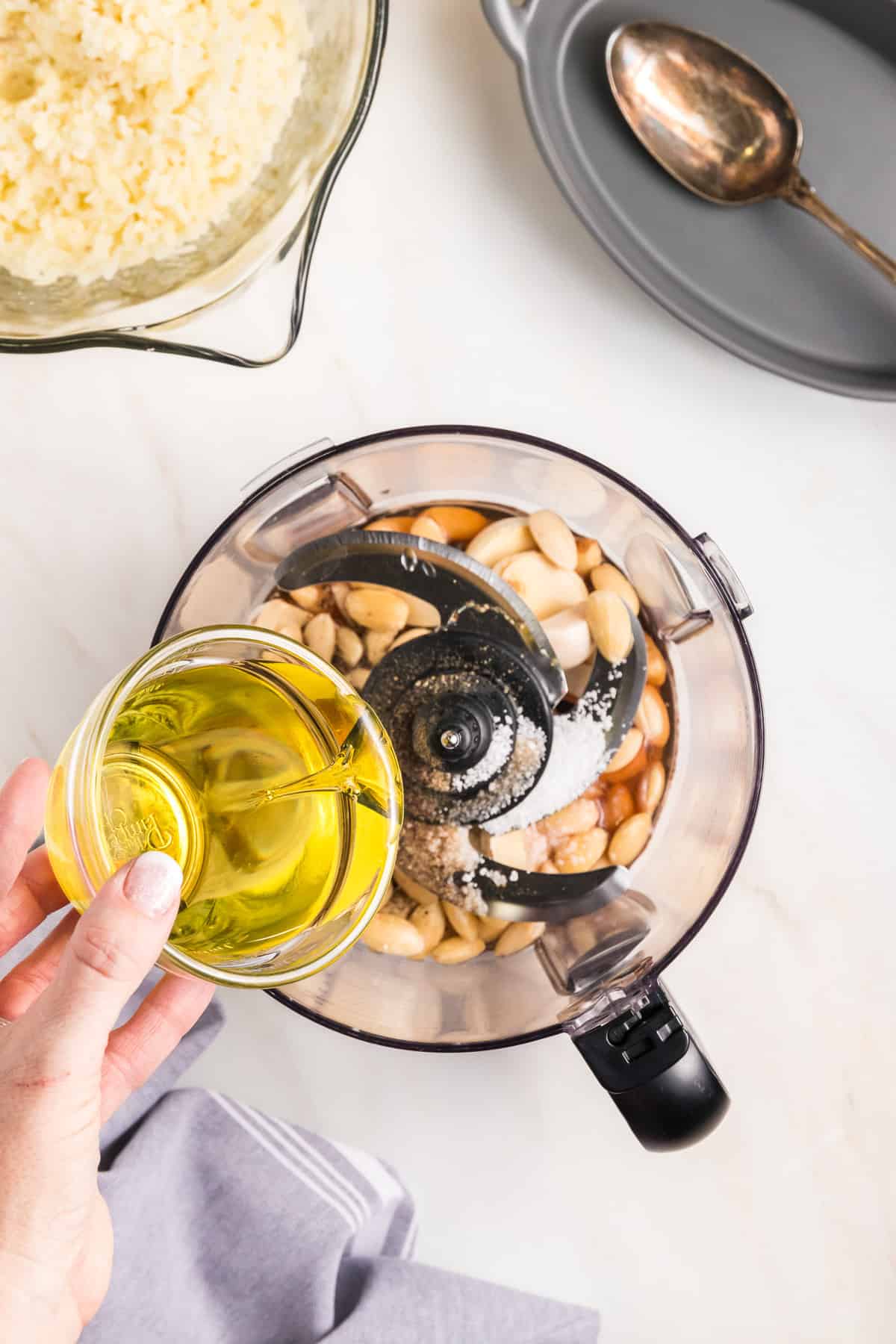
Add the garlic paste to the mashed potatoes and stir well to combine. For a creamier version, add in a generous scoop of Greek yogurt.
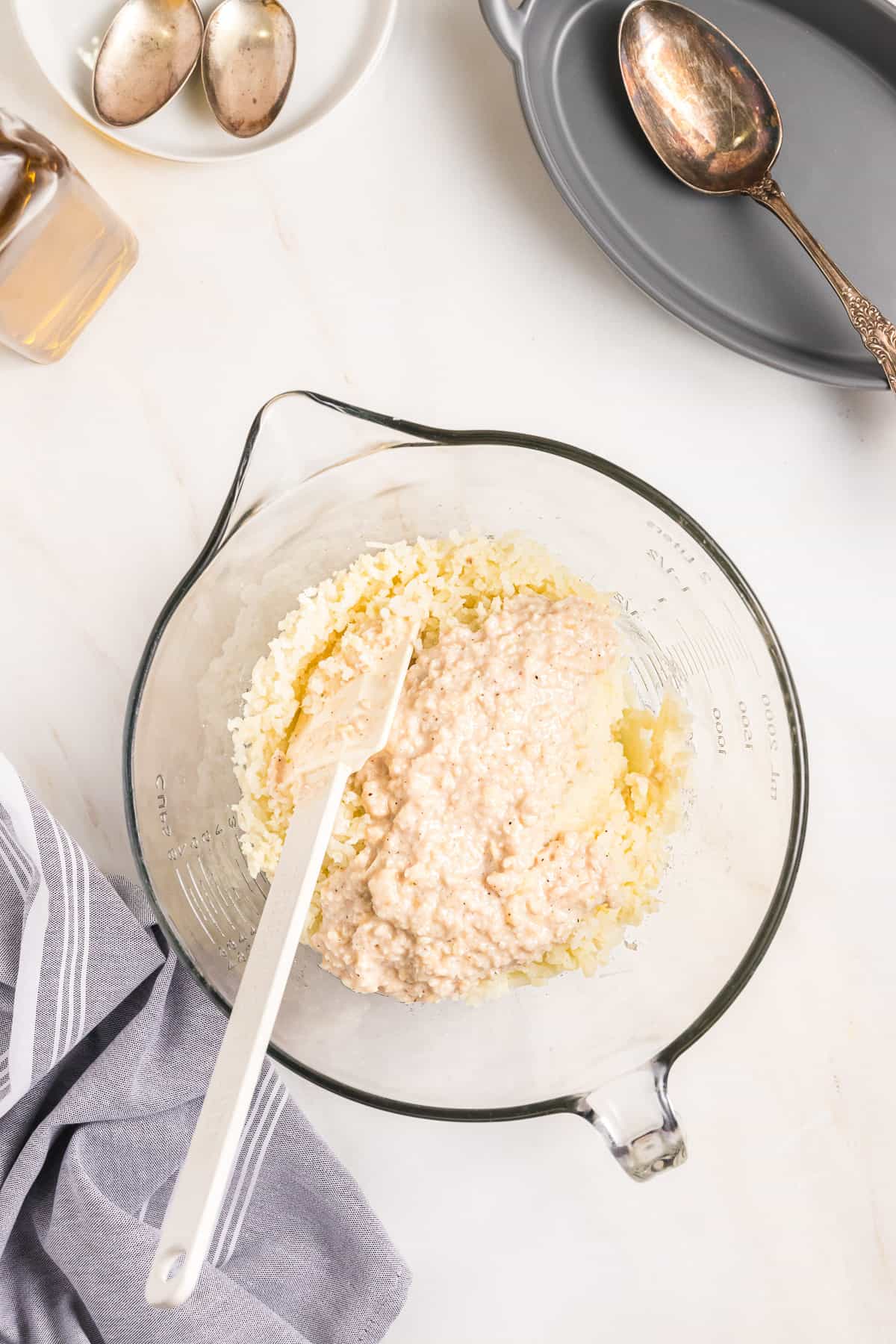
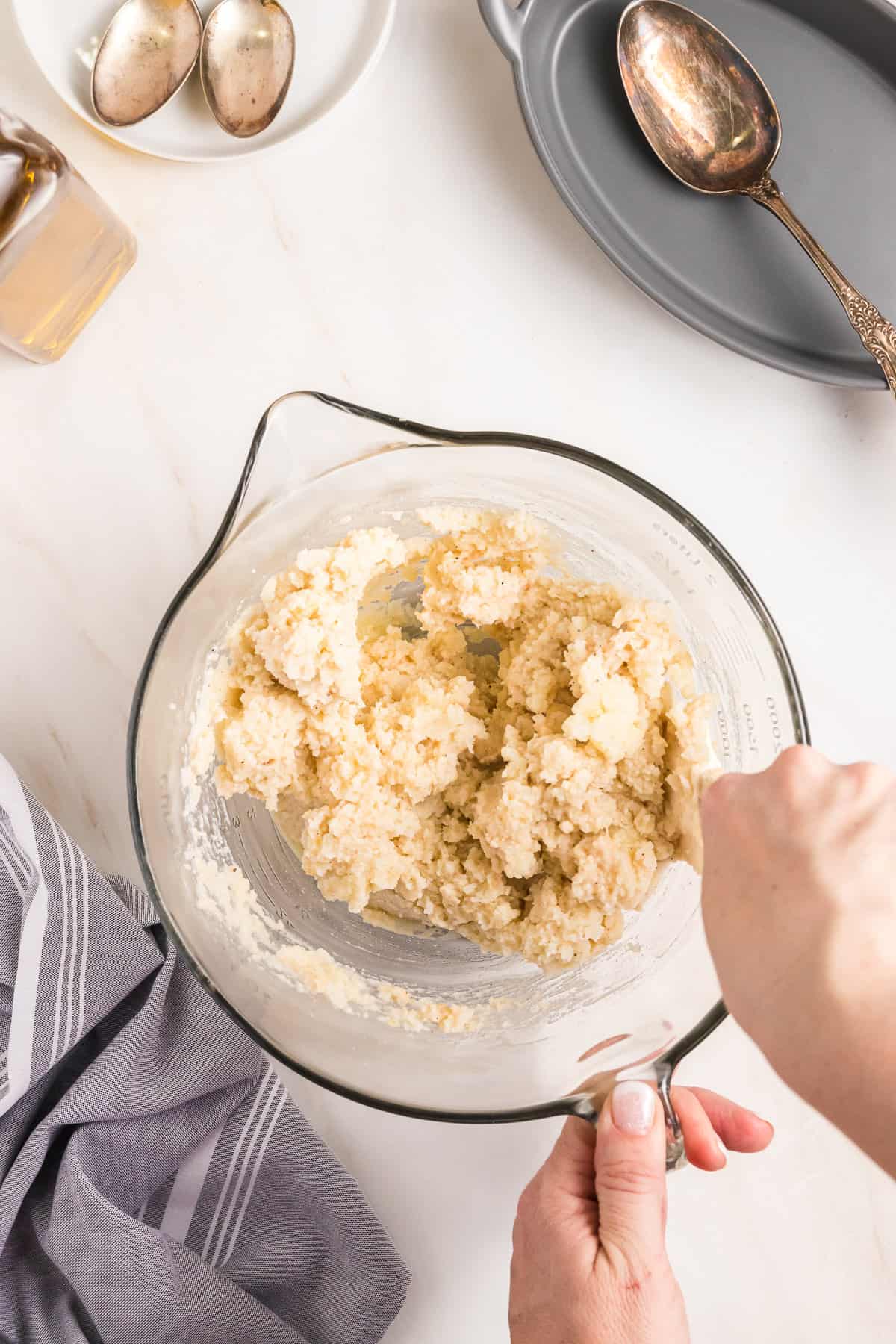
Transfer the skordalia to a serving dish and drizzle with a little extra olive oil, sprinkle with some additional chopped nuts, and sprinkle with salt & pepper, to taste. Serve with roasted beets or pita bread wedges.
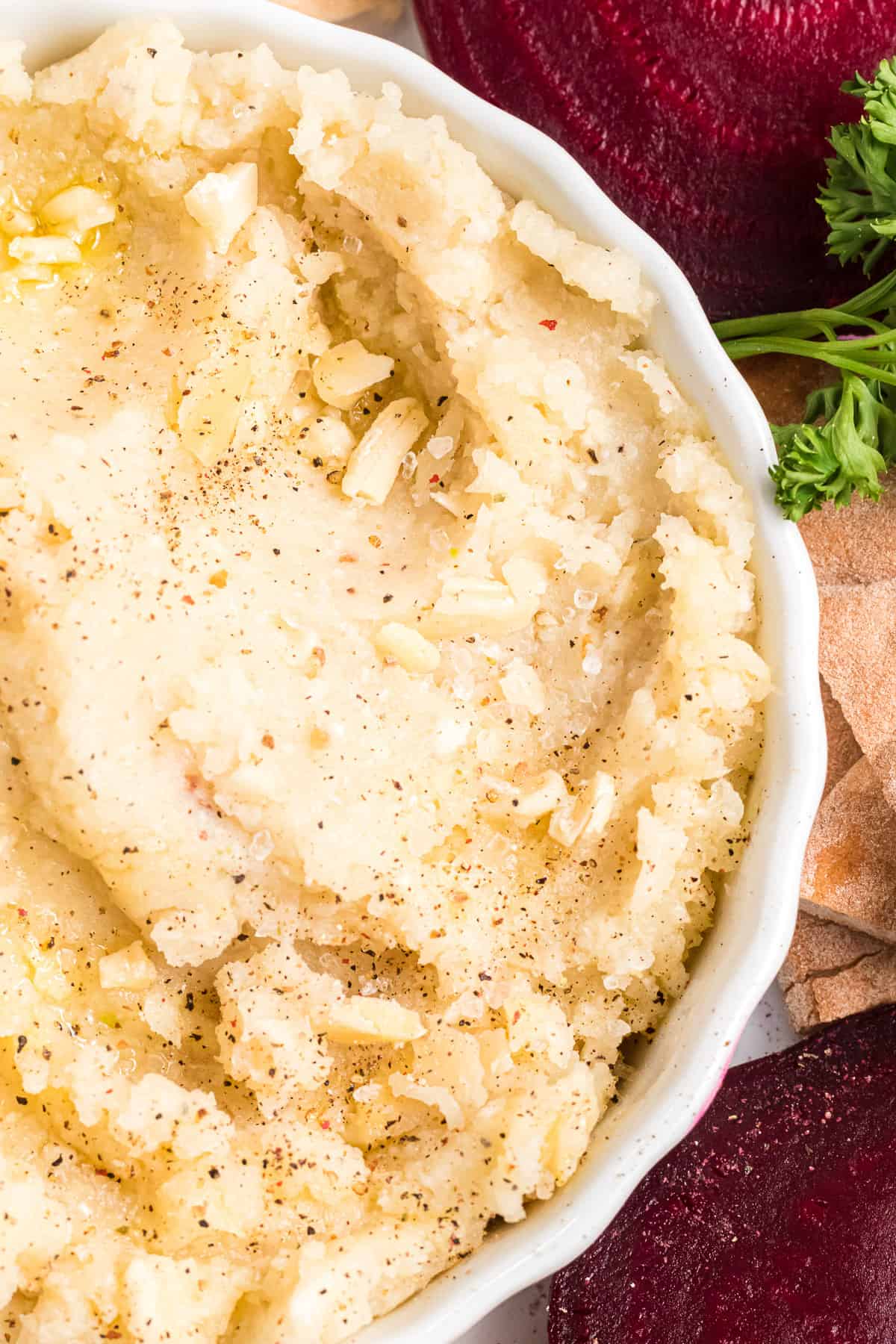
How to Roast Beets in the Oven
Since we almost always serve our skordalia with roasted beets, here’s how we do that. First wash the beets well and drizzle them with a little olive oil, then place them in a pan with 1 cup of water. Cover the pan with aluminum foil and roast for about an hour in a 425°F oven until they pierce easily with a knife.
Once the beets are cool enough to handle, the skins peel right off by rubbing your thumbs over them, easy-peasy. Then slice the beets into discs or dice them into bite-size chunks to serve alongside your skordalia.
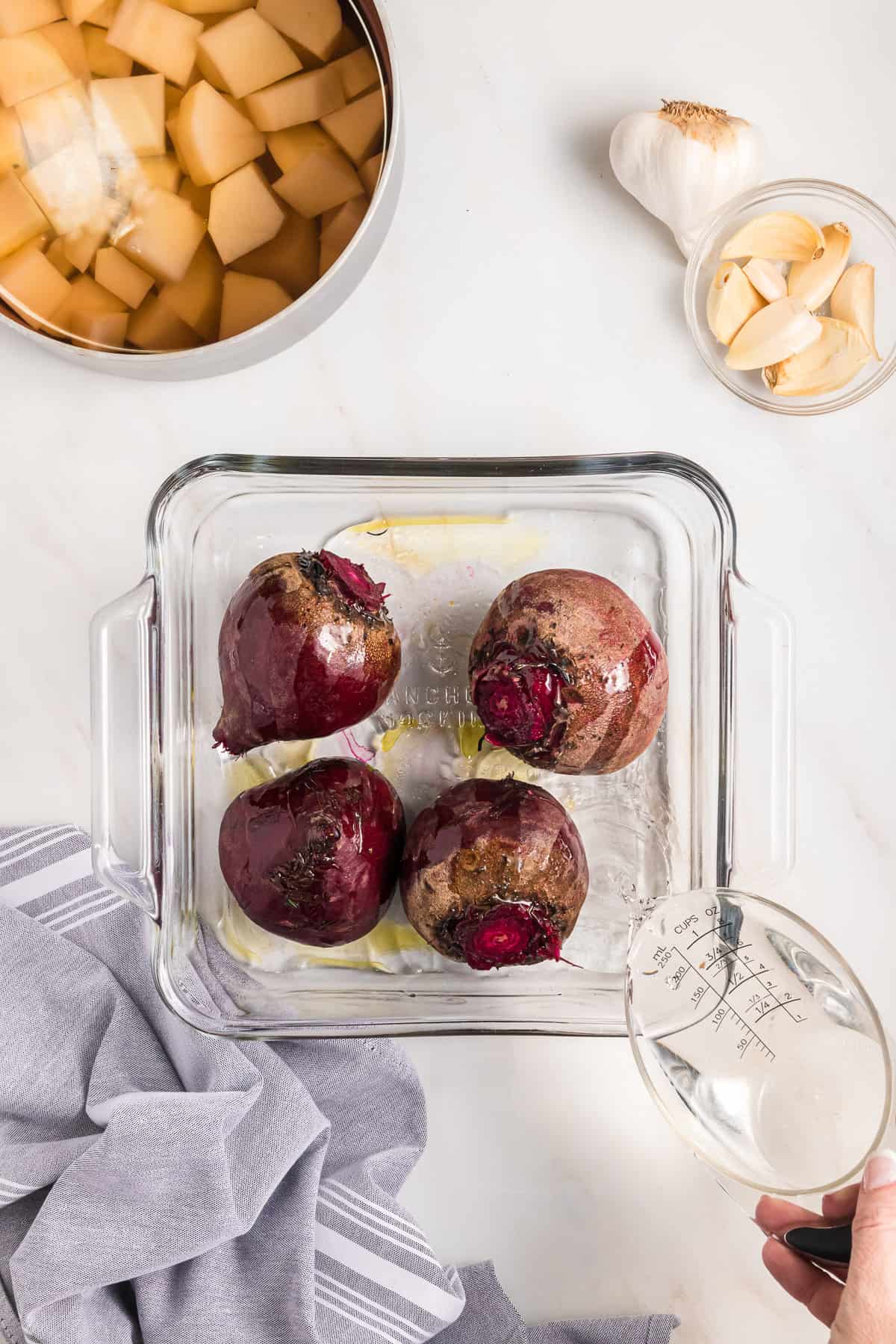
Recipe FAQ’s
Skordalia can be served chilled or at room temperature. You can serve it with roasted beets (my personal favorite) or warmed pita bread cut into triangles, or alongside of grilled or fried fish, chicken, or other proteins. You could also just enjoy it with veggies or crackers, similar to hummus.
Recipe Tips
- Storage: Skordalia keeps in the fridge for about 3-4 days, although the flavor often intensifies over time.
- Greek Yogurt: We like to add a generous scoop (probably ⅓ to ½ cup) of plain Greek yogurt sometimes to make the skordalia extra creamy. It’s not traditional, but very delicious.
- Get rid of excess starch: Rinse the diced potatoes for 20 seconds both before and after cooking to get rid of some of the unwanted surface starch, which can cause the skordalia to be gummy.
- Mix the olive oil into the potatoes while they are still warm so it incorporates well.
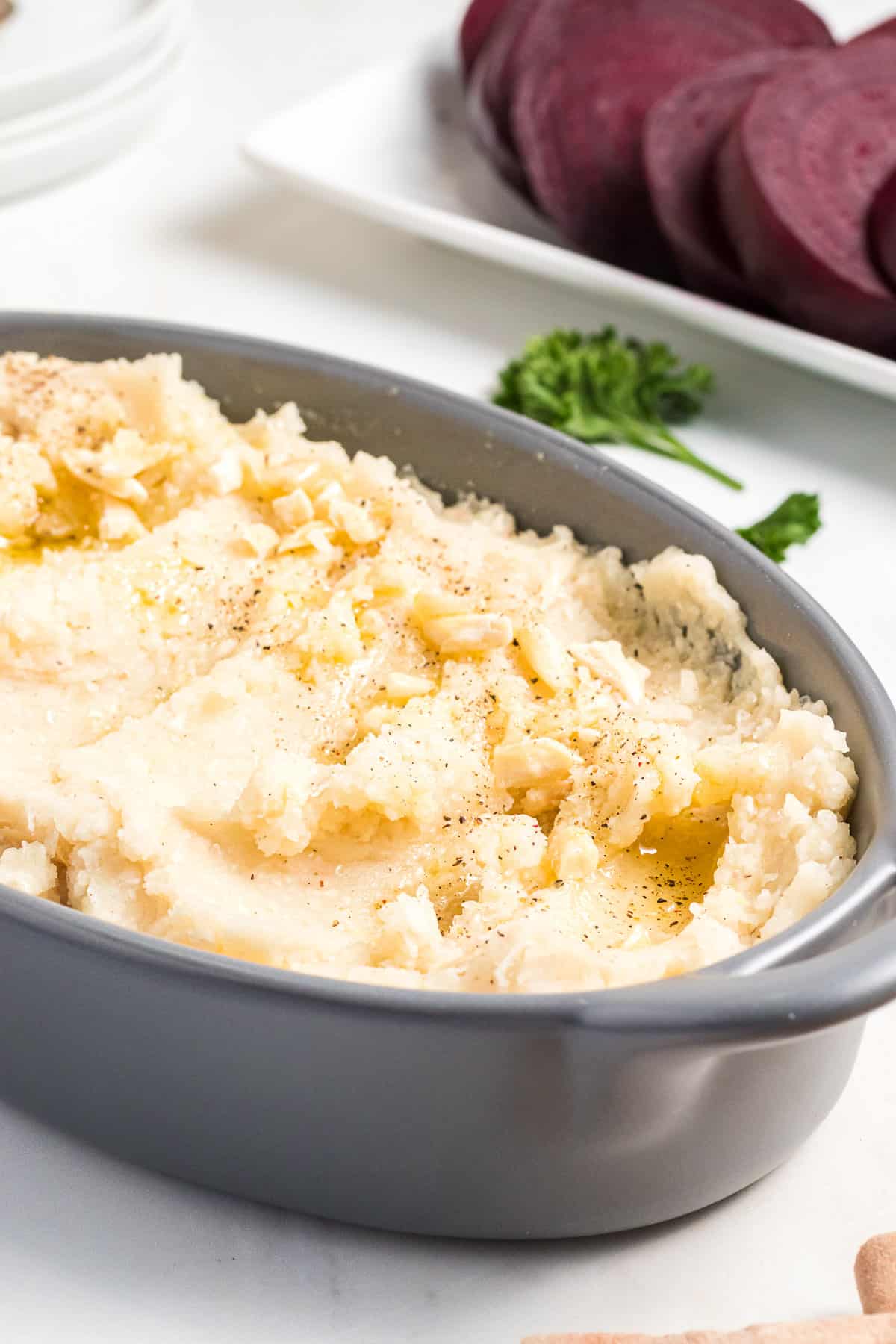

What do I Serve with Pantzaria me Skordalia?
- Crispy Cast Iron Skillet Chicken Thighs
- Grilled Whole Fish
- Baked Greek Feta Meatballs
- Oven Baked Rainbow Trout
Did you make this recipe?
Let me know what you thought with a comment and rating below. You can also take a picture and tag me on Instagram @houseofnasheats or share it on the Pinterest pin so I can see.
Skordalia (Greek Garlic-Potato Spread)
Ingredients
- 2 medium russet potatoes (about 1 lb. or 450g) peeled, diced, and boiled until tender
- 6-7 garlic cloves
- 1/2 cup whole blanched almonds plus more for garnish (85g)
- 3 Tablespoons red wine vinegar or lemon juice
- 2 Tablespoons cold water
- 1 teaspoon kosher salt
- 1/4 teaspoon freshly ground black pepper
- 3/4 cup olive oil
Instructions
- Boil the peeled, diced potatoes in salted water 15-20 minutes until soft, then rinse in a colander under running water for 20 seconds to remove some of the excess starch. Let the potatoes drain thoroughly so they are very dry, then mash with a potato ricer or potato masher.2 medium russet potatoes
- In a food processor (affiliate link), pulse the garlic and almonds into a paste with the vinegar, water, salt and pepper to form a paste. Gradually add the olive oil to the food processor (affiliate link) and continue to mix until combined.6-7 garlic cloves, ½ cup whole blanched almonds, 3 Tablespoons red wine vinegar or lemon juice, 2 Tablespoons cold water, 1 teaspoon kosher salt, ¼ teaspoon freshly ground black pepper, ¾ cup olive oil
- Transfer the garlic paste to a large bowl with the hot mashed potatoes. Stir in the olive oil and garlic paste thoroughly until it is absorbed by the warm potatoes, (if the potatoes are cold, the olive oil won't incorporate as well).
- Serve the skordalia chilled or at room temperature with roasted beets and/or warmed pita bread cut into triangles on the side. Garnish with a sprinkle of finely chopped almonds and/or chopped fresh parsley.
Notes
- Storage: Skordalia keeps in the fridge for about 3-4 days, although the flavor often intensifies over time.
- (OPTIONAL) Greek Yogurt: We like to add a generous scoop (probably ⅓ to ½ cup) of plain Greek yogurt sometimes to make the skordalia extra creamy. It’s not traditional, but very delicious.
- Roasting Beets: Since we almost always serve our skordalia with roasted beets, here’s how we do that. First wash the beets well and drizzle them with a little olive oil, then place them in a pan with 1 cup of water. Cover the pan with aluminum foil and roast for about an hour in a 425°F oven until they pierce easily with a knife. Once the beets are cool enough to handle, the skins peel right off by rubbing your thumbs over them, easy-peasy. Then slice the beets into discs or dice them into bite-size chunks to serve alongside your skordalia.
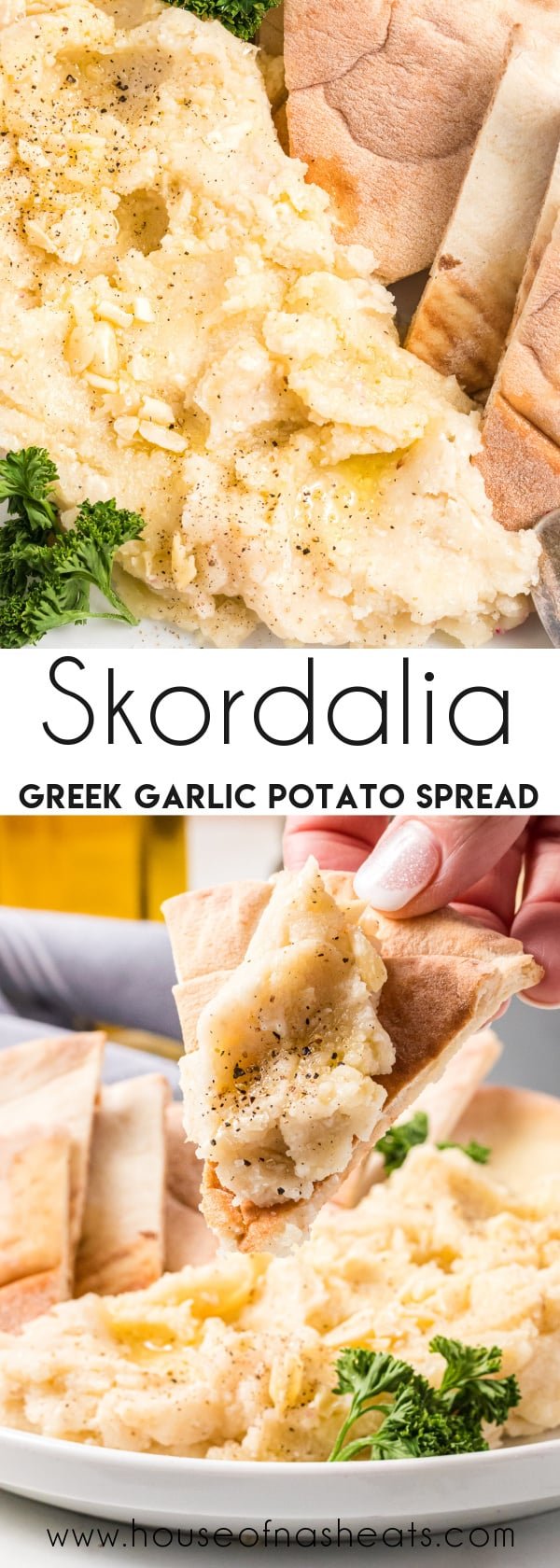
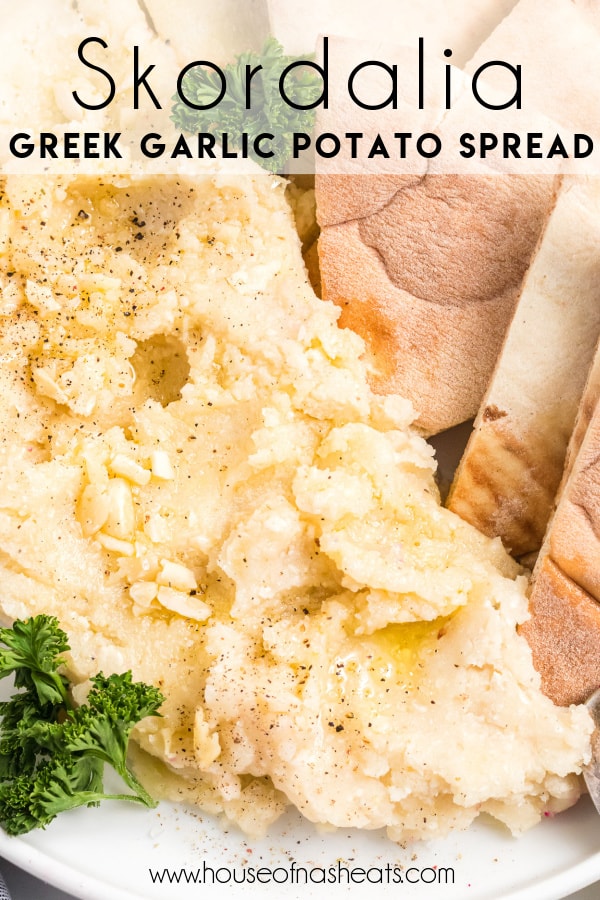



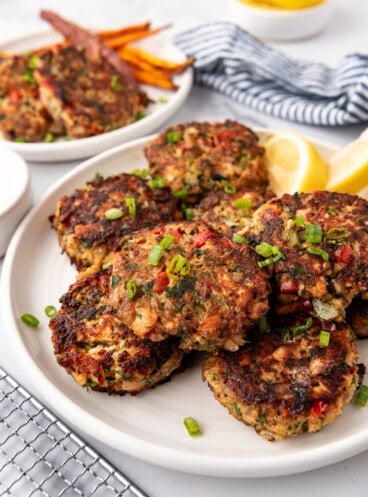
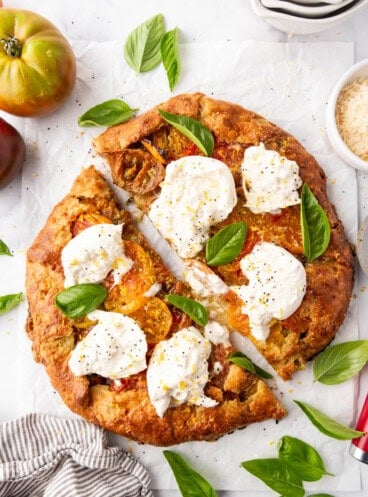

Greek cooking is all about using fresh ingredients, and this recipe is perfect when beets are in season! The roasted garlic spread (skordalia) is the perfect complement to the sweet flavor of the beets.
I’ve never heard of mezethes- but I LOVE tapas, and I think it totally make sense that Greece has a similar small plate, communal tradition. (Especially since it’s such a family-centered area!) And these beets looks just gorgeous. Beets are one of the prettiest veggies!
Wow! Historically Hungry, what a fun post!! And those beets with garlic potato… whoa. Just look at that garlic – amazing. I can’t wait to try this!
I’ve had skordalia before but I’ve never made it and in fact I never really even knew what was in it! Now, that I have the recipe, there is no excuse not to make it at home. Plus, I’ve never had it with beets. That’s sounds perfect! I love the history lesson too!
Well …. first I LOVE Greek food. I, however, have never heard of this. Sounds totally delicious. What an interesting way to use beets. I think I just might have to pick some up at the market this weekend and give this tasty recipe a try. Perfect for all the BBQ parties I will be attending.
this looks so delicious! I love the brightness of the beets! However, I must confess that I have avoided making beets in so long because they always stain my hands bright red!
We are big Greek food fans — Hubby spent two years on Crete and he had the food first hand. We love trying new foods and tastes. We don’t have a Greek restaurant nearby so I’d love to surprise him with this. It sounds amazing.
I love Greek food, but I never get an opportunity to have it. I sometimes forget that I can make some dishes at home. I can’t wait to give this a try!
This recipe reminds me of my childhood. My grandmother used to make big bowls of scordalia and served them with vegetables and bread. This is delicious and perfect for easy entertaining. I love your historical hungry posts!!!
Thanks, Kathy! 🙂
Oh my gawd. Can I just eat a huge plate of this as a meal itself? I love everything here: roasted beets, mashed potatoes, pistachios, garlic…
I don’t make potatoes often, sadly, because my husband hates them (savage, I know). This sounds like a great way to make creamy dreamy mashed potatoes. Is this essentially whats happening, or should skordalia be seen (and respected) as its own thing?
Either way, I’m down.
I really think it’s kind of it’s own thing. Definitely similar, but not the same.
Oh my goodness, how have I not tried this before? All of my favorite foods in one, especially that garlic potato spread – yummo!! I just LOVE Greek food, it’s so fun to make at home and share with family and friends mezze style.
I was immediately drawn to this flavour combination thanks to a little restaurant in Vancouver that serves a skordalia with beets already in it! Tastes wonderful, and it’s spectacular to look at too. I love this more ‘deconstructed’ take for its versatility though – you can have as many or as few beets in it as you like (for me, the more beets the better). It’s a great dish, and I love your look at and links to the history and culinary culture of meze dishes. Wonderful stuff!
Thanks, Sean! The restaurant I had it at served the skordalia with beets in it already as well. I like it both ways!
I love roasted beets but have never had them with Skordalia! Actually, I’m pretty sure that I’ve never had Skordalia at all, and judging by your post, that needs to change immediately. What a fabulous sounding dip on its own, but especially with the roasted beets and pistachios. I love learning about the history of dishes, and your Historically Hungry theme is brilliant!
Thank you, Amanda! The history part is fun for me too! I’m glad you like it!
I am obsessed with Greek and Mediterranean food! I love the use of color, fresh ingredients, and FLAVOR and this recipe looks like it’s right up my alley. Roasted beets are amazing, and the Skordalia looks delectable. This will be on the menu THIS WEEK!
Thank you for the wonderful recipes–but please don’t discard the beet greens! It takes just three minutes to sauté them with garlic, olive oil, a dash of salt or soy sauce (and a squeeze of lemon after the heat is off). They are delicious–taste like chard and are a great compliment to this dish!